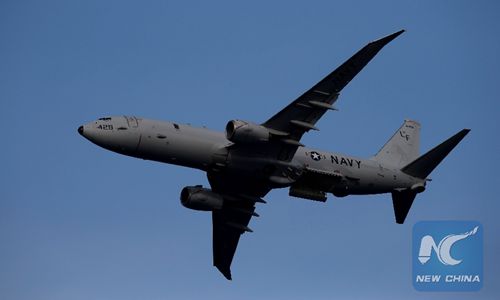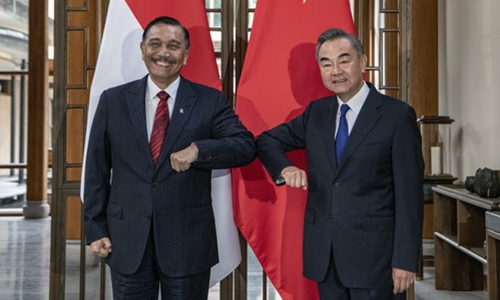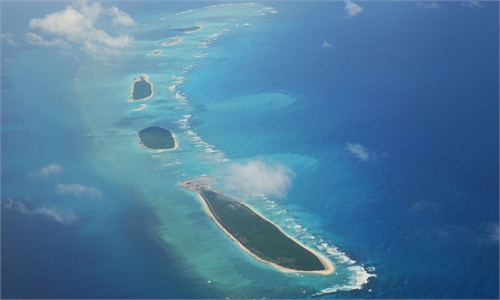South China Sea region can’t be pushed by Washington’s military whims

A file photo of US Navy Boeing P-8A Poseidon Photo:Xinhua
Indonesia has rejected the US proposal to allow its P-8 Poseidon maritime surveillance planes to land and refuel in the country, according to a Reuters report. This exclusive report is based on information from four senior Indonesian officials familiar with the matter. "We don't want to be duped into an anti-China campaign," former Indonesian ambassador to the US Dino Patti Djalal told Reuters.
US' P-8 Poseidon maritime surveillance planes have played an essential role in the country's surveillance operations against China, especially its surveillance of China's activities in the South China Sea. The P-8 surveillance planes had landed in Singapore, Malaysia and the Philippines. However, Indonesia does not agree to the US proposal. This shows its clear and firm attitude on the South China Sea issue: It does not want the region to become a place for major powers' military games. Nor does it want the US to disturb regional situation. This is a correct attitude of a true regional power.
The competition between China and the US is intensifying. Washington has been trying to rope in regional countries to gang up against Beijing, forcing them to take sides. But most of these countries, especially ASEAN members, including Indonesia, attach great importance to balanced national relations with major powers. Taking sides is not in line with their interests. By rejecting the US surveillance planes' landing and refueling in the country, Indonesia has made it clear that it will not take sides in terms of the South China Sea affairs.
Greg Poling, a Southeast Asia analyst from the Washington DC-based Center for Strategic and International Studies, said that trying to get landing rights for spy planes indicates how little the US government understands Indonesia.
To some extent, the US has shown its overconfidence. Washington feels that these countries will obey the US' instructions with either coercion or temptation. However, these regional countries have their own national interests. The US has clearly misjudged the situation. It wrongly believes that the countries can be manipulated by US' beck and call.
In addition, the US does not fully understand these countries' true domestic situation. Countries such as Indonesia have grown into emerging economies in recent years. Clearly, these countries are following their own path of development, instead of dancing to US' tune. Indonesia's attitude represents the position of most ASEAN members.
Although China and Indonesia have disputes in the South China Sea, the two countries are increasing their mutual relations with economics, trade and investment. Dino told the Reuters that China is now "the most impactful country in the world for Indonesia." In fact, China's cooperation with Indonesia and other ASEAN members is based on mutual interests. It does not target a third party. The continuous growth of investment and trade between China and ASEAN is not due to the pressure of a third party. It is a natural outcome of bilateral cooperation - with an abundance of opportunities. This also explains why China-ASEAN cooperation can be long-lasting.
Dino published an article in The Diplomat on October 15, in which he said, "To expect Southeast Asian governments to commit to a blanket opposition to China under these circumstances is totally unrealistic."
Indonesia has made its attitude very clear. If Washington keeps trying to form a small group of countries targeting Beijing in the South China Sea, it may become increasingly isolated. Such a trick might have worked during the Cold War era. But it is the 21st century today. This outdated min-dset is no longer suitable for the development of the current world. In the context of the COVID-19 pandemic, the world needs more cooperation, instead of isolationism and unilateralism. Multilateralism is the mainstream of our international cooperation. There will be no future for US' unilateralism and utilitarianism.
The author is director of the Center for Southeast Asian Studies at the Chinese Academy of Social Sciences in Beijing. opinion@globaltimes.com.cn


